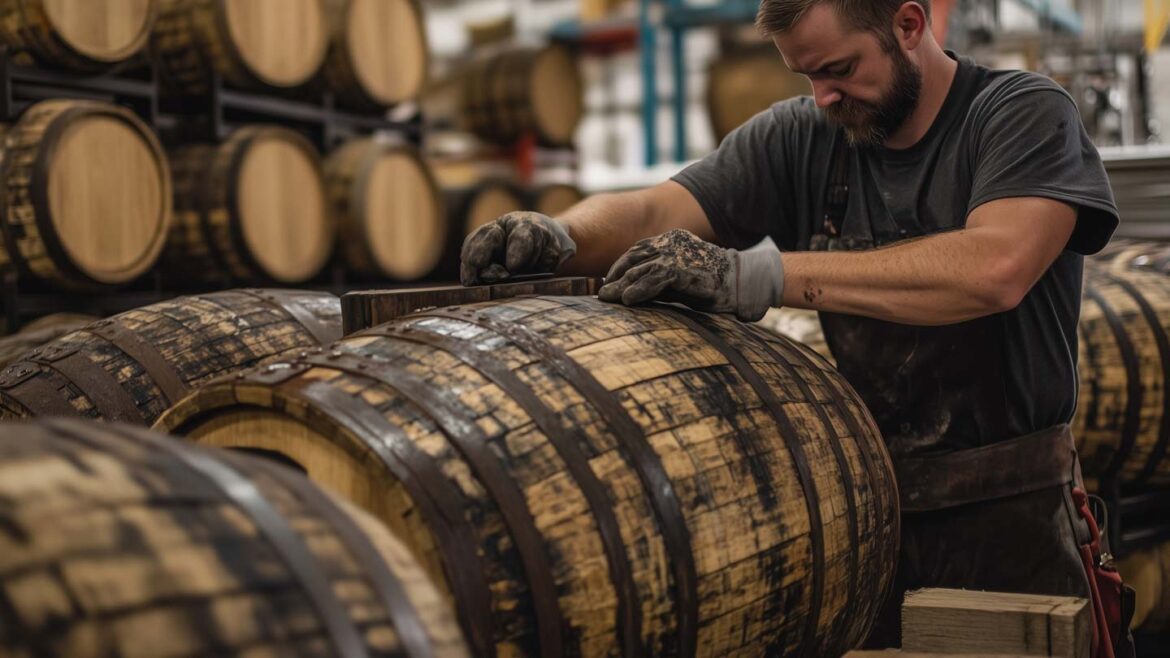
The Growing Appeal of Investing in Whisky
In recent years, whisky has transcended its role as a luxury beverage to emerge as a promising alternative asset class. With increasing global demand, limited supply and a heritage-rich narrative, whisky investment offers a unique opportunity for those looking to diversify their portfolios. For investors seeking tangible assets with storied value, whisky provides both emotional and financial appeal.
Overview of Traditional Asset Classes
Traditional investment avenues such as stocks, bonds, and real estate have long been the cornerstones of wealth generation. Stocks offer high liquidity and growth potential but are subject to market volatility. Bonds provide predictable returns but often yield lower gains. Real estate is seen as a stable, long-term investment, though it requires substantial capital and can be illiquid. Each of these carries its own risk-reward profile, and increasingly, investors are exploring alternative investments to complement them.
1. Understanding Whisky as an Investment
What Makes Whisky a Tangible Asset
Unlike digital or paper-based assets, whisky casks are physical commodities stored in government-bonded warehouses. This tangibility offers a psychological comfort to investors, providing an asset one can touch and even sample. Whisky casks are not just barrels; they are repositories of time, craftsmanship and scarcity.
Role of Cask Aging in Value Appreciation
Cask aging is a crucial component of whisky’s value proposition. As whisky matures, its flavour profile deepens and its rarity increases. This aging process, typically over 5 to 25 years, allows the spirit to interact with the wood, enhancing its quality and desirability. The older the cask, the higher its potential market value—making cask aging both a scientific and financial asset driver.
Tax Benefits
Whisky investments often come with notable tax advantages. Under current HMRC guidelines in the UK, whisky casks are considered a “wasting asset,” potentially exempt from Capital Gains Tax. This unique status can make whisky a more tax-efficient option compared to other tangible or intangible investments.
2. Comparing Returns: Whisky vs. Stocks, Bonds and Real Estate
Historical Performance of Whisky Investments
Whisky has consistently outperformed many traditional assets over the past decade. According to the Knight Frank Luxury Investment Index, rare whisky has seen a 564%* growth over 10 years, showcasing its robust appreciation. Even during economic downturns, fine whisky has demonstrated resilience, making it a noteworthy performer in diversified portfolios. *Whisky bottles only.
Typical Stock Market Returns and Volatility
The stock market offers the allure of high returns, particularly in growth sectors. However, it is also characterised by volatility driven by geopolitical events, interest rate changes and investor sentiment. Annual returns fluctuate widely, with average long-term gains around 7-10%. This volatility may not suit all investor profiles.
Real Estate Long-Term Yields and Liquidity
Real estate is often considered a stable and inflation-hedged investment. However, it involves significant upfront capital, ongoing maintenance and is typically illiquid. While long-term appreciation is common, the sector is also vulnerable to regulatory changes and economic cycles.
3. Risk Profile and Volatility
Price Fluctuations in Whisky Casks
Whisky casks experience relatively low price volatility compared to equities. However, risks do exist, including quality control, market demand shifts and warehouse management. Proper due diligence and partnering with reputable firms mitigate much of this risk.
Market Risks in Equities and Property
Stocks are subject to systemic risks including inflation, interest rates and corporate governance. Real estate faces market-specific risks such as zoning laws, rental vacancies and market saturation. These require active management and broader economic awareness.
Liquidity Considerations and Time Horizons
Whisky investments are medium to long-term in nature. While less liquid than stocks, the holding period aligns well with the cask aging process. Investors must be prepared for a holding period of at least 5 to 10 years, making it a commitment suited to long-term planners.
4. Diversification Benefits
Why Alternative Investments Matter in Portfolios
Incorporating alternative assets like whisky provides a hedge against traditional market downturns. These assets often move independently of the stock and bond markets, reducing overall portfolio risk.
Low Correlation of Whisky with Traditional Assets
Whisky prices are influenced by unique supply-demand dynamics, not stock indices or interest rates. This low correlation makes whisky a powerful diversification tool for investors looking to stabilise their portfolio’s performance.
Whisky’s Place in a Diversified Investment Portfolio
As a niche but high-performing asset, whisky can serve as a complementary component within a diversified portfolio. Its inclusion can balance volatility, especially when traditional markets face downturns.
5. Drawbacks and Challenges of Whisky Investing
Storage, Insurance and Warehouse Costs
Owning whisky casks involves ongoing costs such as storage in bonded warehouses, insurance and periodic quality assessments. These expenses must be factored into ROI calculations.
Regulatory and Exit Strategy Complexities
Navigating the regulatory landscape can be complex, particularly regarding ownership transfer, bottling rights and export regulations. Additionally, exit strategies must be clearly planned, whether through private sale, auction or retail bottling.
Scams, Due Diligence and Secondary-Market Risks
As with any growing investment trend, whisky is not immune to scams. Investors should conduct thorough due diligence, verify cask ownership and engage with transparent firms to mitigate these risks.
6. Who Should Consider Whisky Investment?
Ideal Investor Profile
Whisky investment is ideal for who is a high-net-worth, long-term investor seeking capital growth and diversification through a tangible, passion-driven asset—often investing for future generations such as children or grandchildren.
When Traditional Assets May Be More Suitable
Investors seeking high liquidity or short-term gains may find traditional assets more appropriate. Stocks and bonds offer easier entry and exit points and are better aligned with shorter investment horizons.
7. Case Studies / Real-World Examples
Vintage Acquisitions Customer Experiences
Clients of Vintage Acquisitions have reported profitable returns, particularly those investing in well-aged, high-quality casks. Testimonials reflect satisfaction with the transparency, storage management and overall service quality.
8. Practical Steps to Invest in Whisky
Choosing Reputable Dealers Like Vintage Acquisitions
Reputation and compliance are critical. Vintage Acquisitions offers a vetted process for acquisition, storage and resale, ensuring transparency and quality assurance throughout the investment journey.
Evaluating Casks and Aging Potential
Not all casks are created equal. Investors should consider age, distillery reputation, cask type and storage conditions. Professional guidance is essential for selecting high-potential assets.
Exit Strategies: Resale, Auction, Bottling
Exit strategies include selling to other investors, auctioning via specialist houses, or bottling for retail. Each offers different return potentials, time frames and regulatory considerations.
9. Conclusion
Summary of Pros and Cons
Whisky investment stands out for its tangible nature, potential tax efficiency and diversification benefits. However, it requires patience, due diligence and a willingness to engage with a niche market.
Final Thoughts on Where Whisky Fits vs. Traditional Asset Classes
As a complement to traditional assets, whisky provides an exciting opportunity for those looking to blend passion with profit. While not a replacement for equities or real estate, it can enhance overall portfolio resilience.
FAQs
1. Is investing in whisky profitable?
Yes, whisky investment has shown strong historical returns, especially with rare and well-aged casks. However, returns vary depending on market demand, cask quality and holding period.
2. How long should I hold a whisky cask?
Typically, cask investment is medium to long-term, with a recommended holding period of 5 to 10 years to maximise aging benefits and market value.
3. Is whisky investment safe?
Like all investments, whisky has risks, but these can be mitigated by purchasing through reputable dealers, ensuring cask insurance and proper storage in bonded warehouses.
4. Do I pay tax on whisky investment profits?
Under current UK regulations, whisky casks are considered “wasting assets” and may be exempt from Capital Gains Tax. Consult a tax advisor for specific circumstances.
You must be 18 or over to order with Vintage Acquisitions
*Vintage Acquisitions are not tax experts or financial advisers. If you need further clarification or advice on cask whisky purchasing please contact your financial adviser and tax specialist.
– Whisky cask investments are unregulated in the UK
– Fees apply and these are outlined in our terms and conditions
1. Vintage Acquisitions are not tax experts. If you need further clarification or advice on cask whisky purchase please contact your tax specialist or accountant.
2. We are not financial advisers, and the information in our brochure and on our website is purely to inform you about the nature of the Scottish whisky industry so that you can make an informed decision should you choose to buy a cask. We recommend you to speak to your financial adviser in the first instance.
3. The value of cask whisky can go up as well as down. If you wish to speak to someone regarding the cask buying process or any points raised in this guide or our website, please don’t hesitate to contact us.
4. If you wish to sample or bottle your cask. Please be aware duty and VAT will be due before the whisky has been bottled and the finished goods are removed from the HMRC licence warehouse. This remains the responsibility of the cask owner.
5. It is advisable to perform regular health checks on your cask every 3 years. Cask services are chargeable to the client, these include, regauging, samples and photographs.
6. Our WOWGR certificate (Departmental Trader Registration Number: 127 4643 13/0001) issued by HMRC, authorises us to store cask whisky in any appropriately approved Scottish excise warehouse. Therefore, we store casks of whisky across a number of distilleries and HMRC approved facilities in Scotland.

